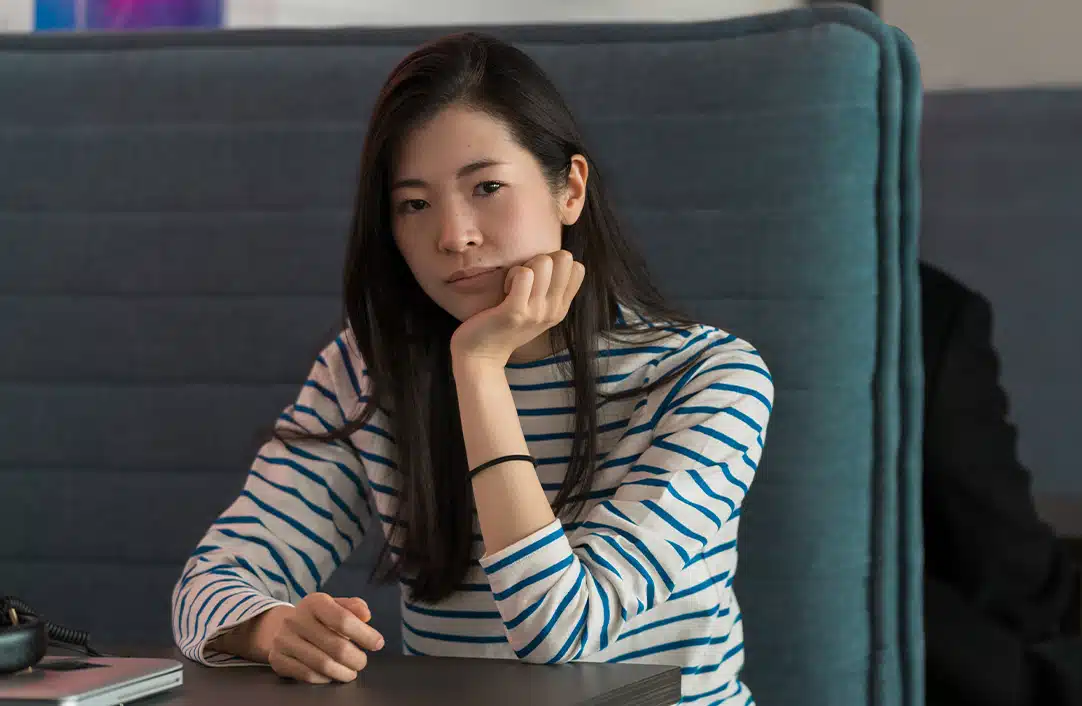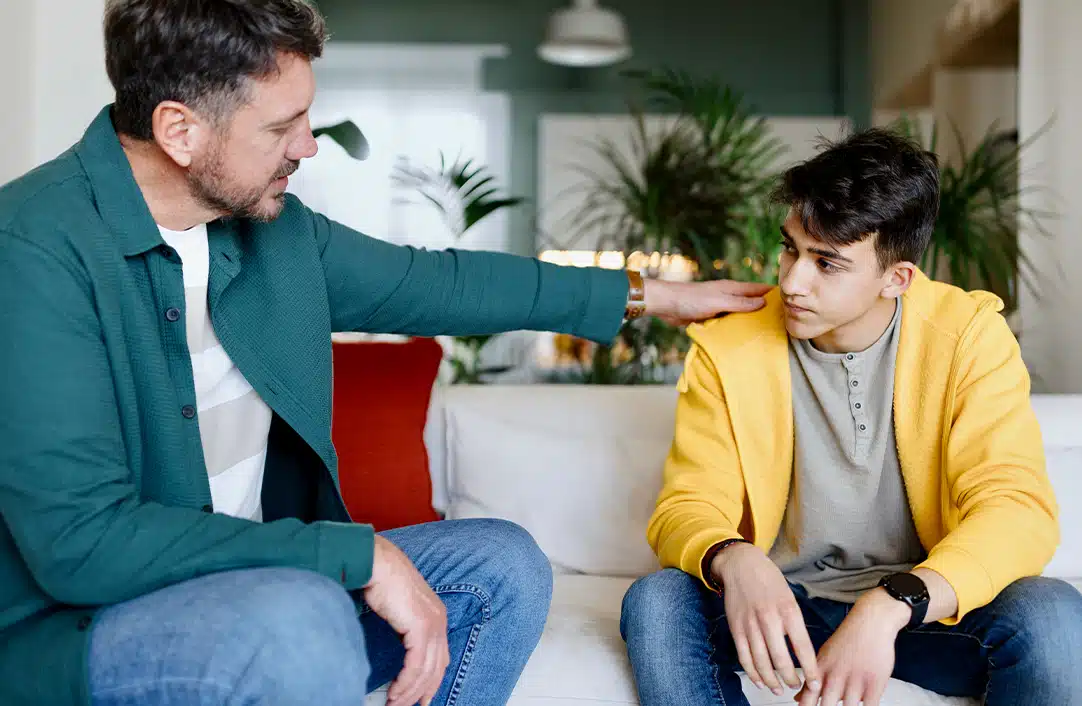
There Is Hope After Sibling Sexual Abuse
“Vista Balboa Crisis Center, this is Katie. How can I help you today?”
I hadn’t been expecting this particular phone call one sunny Thursday afternoon while working my shift at a crisis center. Although I had heard many stories from adults who had been traumatized as children, the depth of pain I felt from the person on the other end of the line was especially heartbreaking. They had experienced severe sibling sexual abuse, and this was the first time in over 30 years they had disclosed it to anyone.
As we talked about this person’s experiences, they expressed deep confusion and shame toward the abuse, toward their sibling, and especially toward themselves. They hesitantly described how they had opposite, conflicting, and confusing feelings toward the abuse as well as toward their sibling. When this person learned later in their childhood that it was taboo to have sexual contact with a sibling, they felt like they were responsible for what happened. This had kept them from seeking help over the long, lonely years since their childhood. In those years, they continually struggled with issues of power and balance in their relationships and had immense difficulty trusting others. In over 30 years, they had never had a close relationship.
A very little key will open a very heavy door.
—Charles Dickens
If you have experienced sibling sexual abuse, you are not alone.
While there are many practical resources you can use to heal from sibling sexual abuse, realizing that you are not alone and that your experiences are valid can be important first steps for many survivors. In this blog post I hope to walk alongside you for a few of those steps by sharing with you some common experiences of survivors of sibling sexual abuse.
Ambivalence
Experiencing ambivalence, or conflicting feelings toward someone or something, is a common experience for survivors of child sexual abuse—especially for those who have experienced abuse by a sibling. Just as the weather can be rainy and sunny at the same time, people are capable of experiencing multiple feelings at the same time—even some that may seem opposite, like love and hate.
These emotions can feel confusing or isolating. For many, these contradictory feelings may lead to additional feelings of guilt if they have any positive feelings about the abuse or toward their sibling(s). Deja,* for example, wanted desperately for her step-brother to like her, causing her to readily comply with his abusive and humiliating requests. As an adult Deja feels angry and betrayed by her step-brother and his harmful actions. On the other hand, she still desires his approval and struggles with feeling the abuse was her fault because she had complied and never asked to stop. Deja’s ambivalence toward her brother and sense of self-doubt made it difficult for her to seek support or talk about the abuse to anyone for many years.
Some survivors experience this ambivalence toward their parents or other caregivers, sometimes more so than toward their sibling(s). Although sibling sexual abuse can happen in families with attentive and loving parents, many survivors struggle with feelings toward parents who may have been absent, were busy with their own relationship issues, favored some siblings over others, or responded poorly when the abuse came to light. Research has shown that even typical parents may struggle to intervene appropriately when abuse occurs between their children due to the complex nature of the issue and also because both children typically need help. When there is a lack of appropriate action, it can create layers of resentment or pain for the child being harmed.1
Charlie’s* parents, for instance, were amazing examples of love and support for most of her life, but then swept Charlie’s abuse under the rug when they felt it would cause too much disruption in the family. As a result, Charlie feels both loved and unloved by her family, and the ambivalence leaves her uncertain how to interact with her family.
Because of how the human body automatically responds to certain sensations or scenarios, many survivors may feel confused by how their body may have responded to the abuse, and as an adult may still experience sexual thoughts or fantasies related to those experiences. This can lead to a conflicted relationship with physical intimacy as well as feelings of shame. Some survivors also feel that because their body responded positively to the sexual touch, they must have liked or deserved the abuse, when in reality no one deserves to be abused.
If you have experienced conflicting or ambivalent feelings about your abuse, your sibling, your family, or even yourself, you aren’t alone. You are neither good nor bad for having the feelings or responses that you have, and these feelings and responses don’t define who you are. You can explore more about your feelings here, and speaking with a trained therapist can help you further understand and work through your experience.
Power and Control
Sibling sexual abuse often progresses over time. What may start out as non-abusive play in some situations can escalate into abuse, especially if coercion, power, or force become defining features. John’s* sexual abuse by his older brother typically came after his brother was in trouble with his parents and was the way his brother regained control. As an adult, John makes sure he is the one with power and control in all of his relationships and gets easily frustrated when he feels out of control. Secretly, John feels deep shame, embarrassment, and loss about his childhood and the relationship with his brother he wished he could have had instead of the one he did have.
Because of the nature of sibling sexual abuse, it’s common for blame to be unjustly shifted to the survivor. Some survivors are made to believe by the sibling (or others) that it was their fault or that, as mentioned before, because their body responded or because they complied, that they must have made it happen. Andrea’s* abuse, similar to John’s, involved control and manipulation by her sibling who also made Andrea believe that she was to blame. In contrast to John, Andrea finds herself in a passive role in her adult relationships, even in moments when she tries to be assertive. Her feeling of powerlessness often becomes immobilizing during intimate moments with her partner. Again, similar to John, she secretly feels deep shame, embarrassment, and loss about her childhood.
If you struggle with power and control in your relationships or other aspects of your life, you are not alone. Your real power lies within, and you have the ability to heal. You deserve to have balanced and safe relationships with those around you. You can explore more about relationships here, and can further develop relational skills with a licensed therapist who specializes in relationship issues.
Trust and Hope
Imagine that each time you try to open a certain door in your house, it jams. So you start to use a different door and eventually stop using the door that jams altogether. Having your trust broken is similar to the jammed door. Over time, you may learn to never trust the person or institution again.
The trust that is broken in the course of trauma—whether it’s the abuse itself, the responses of others, or your belief in yourself—can feel as if every door in your house is jammed and no one can be trusted. You may feel stuck, powerless, or hopeless that the future will be any different.
These feelings make absolute sense given the experiences you have had. You adapted to your situation, and distrust can be wonderfully helpful in protecting you in many instances where someone may harm you, at least in some circumstances. Being vulnerable would mean opening yourself up to the possibility of being hurt. However, being vulnerable also means opening yourself up to experiencing love, joy, and healing.
Hope is being able to see that there is light despite all of the darkness
—Desmond Tutu
Interestingly, the word hope first meant trust. With time, the definition of hope has extended to mean to expect with confidence, and, my personal favorite, to cherish a desire with anticipation.2
Cherish hope. Cherish healing. Trust there are doors waiting to be opened to you that lead to safety, healing, and growth. If you are seeking hope, you are not alone.3
We're never so vulnerable than when we trust someone—but paradoxically, if we cannot trust, neither can we find love or joy.
—Walter Anderson
*Names have been changed.
If you are in crisis, or would simply like to talk to someone, you can call (U.S.) 1-800-273-8255 to speak with a trained crisis worker.
You can also text HOME to 741741 to text with a trained counselor. (Canada: text 686868. UK: text 85258).
Recent blogs

Common Symptoms Experienced by Adult Survivors of Child Sexual Abuse

Statute of Limitations on Sexual Abuse
